Transcription of THE EMPLOYEES’ STATE INSURANCE ACT, 1948
1 1 THE EMPLOYEES STATE INSURANCE ACT, 1948 [Act No. 34 of 1948]1 [19th April, 1948 An Act to provide for certain benefits to employees in case of sickness, maternity and employment injury and to make provision for certain other matters in relation thereto. WHEREAS it is expedient to provide for certain benefits to employees in case of sickness, maternity and employment injury and to make provision for certain other matters in relation thereto ; It is hereby enacted as follows : CHAPTER I PRELIMINARY 1. Short title, extent, commencement and application. (1) This Act may be called the Employees STATE INSURANCE Act, 1948.]
2 (2) It extends to 2[the whole of India 3[**]]. (3) It shall come into force on such date or dates as the Central Government may, by notification in the Official Gazette, appoint, and different dates may be appointed for different provisions of this Act and 1[for different States or for different parts thereof]. (4) It shall apply, in the first instance, to all factories (including factories belonging to the 2[Government]) other than seasonal factories. 3[Provided that nothing contained in this sub-section shall apply to a factory or establishment belonging to or under the control of the Government whose employees are otherwise in receipt of benefits substantially similar or superior to the benefits provided under this Act.]
3 ]. (5) The appropriate Government may, in consultation with the Corporation and 4[where the appropriate Government is a STATE Government, with the approval of the Central Government], after giving 5[one month s] notice of its intention of so doing by notification in the Official Gazette, extend the provisions of this Act or any of them, to any other establishment, or class of establishments, industrial, commercial, agricultural or otherwise. 6[Provided that where the provisions of this Act have been brought into force in any part of a STATE , the said provisions shall stand extended to any such establishment or class of establishments within that part if the provisions have already been extended to similar establishment or class of establishments in another part of that STATE .
4 ] 1[(6) A factory or an establishment to which this Act applies shall continue to be governed by this Act notwithstanding that the number of persons employed therein at any time falls below the limit specified by or under this Act or the manufacturing process therein ceases to be carried on with the aid of power.] 2. Definitions. In this Act, unless there is anything repugnant in the subject or context, (1) appropriate Government means, in respect of establishments under the control of the Central Government or 2[a railway administration] or a major port or a mine or oil-field, the Central Government, and in all other cases, the 3[ STATE ] Government ; 2 4[(2) * * *] (3) confinement means labour resulting in the issue of a living child, or labour after twenty-six weeks of pregnancy resulting in the issue of a child whether alive or dead.
5 (4) contribution means the sum of money payable to the Corporation by the principal employer in respect of an employee and includes any amount payable by or on behalf of the employee in accordance with the provisions of this Act ; 5[(5) * * *] (6) Corporation means the Employees STATE INSURANCE Corporation set up under this Act ; 1[(6-A) dependant means any of the following relatives of a deceased insured person, namely : 2[(i) a widow, a legitimate or adopted son who has not attained the age of twenty-five years, an unmarried legitimate or adopted daughter ; ] 3[(ia) a widowed mother ;] (ii) if wholly dependent on the earnings of the insured person at the time of his death, a legitimate or adopted son or daughter who has attained the age of 4[twenty-five] and who is infirm.]
6 (iii) if wholly or in part dependent on the earnings of the insured person at the time of his death, (a) a parent other than a widowed mother, (b) a minor illegitimate son, an unmarried illegitimate daughter or a daughter legitimate or adopted or illegitimate if married and a minor or if widowed and a minor, (c) a minor brother or an unmarried sister or a widowed sister if a minor, (d) a widowed daughter-in-law, (e) a minor child of a pre-deceased son, (f) a minor child of a pre-deceased daughter where no parent of the child is alive, or (g) a paternal grand-parent if no parent of the insured person is alive ;] (7) duly appointed means appointed in accordance with the provisions of this Act or with the rules or regulations made there-under ; 1[(8) employment injury means a personal injury to an employee caused by accident or an occupational disease arising out of and in the course of his employment, being an insurable employment, whether the accident occurs or the occupational disease is contracted within or outside the territorial limits of India.
7 ] (9) employee means any person employed for wages in or in connection with the work of a factory or establishment to which this Act applies and (i) who is directly employed by the principal employer on any work of, or incidental or preliminary to or connected with the work of, the factory or establishment, whether such work is done by the employee in the factory or establishment or elsewhere ; or (ii) who is employed by or through an immediate employer on the premises of the factory or establishment or under the supervision of the principal employer or his agent on work which is ordinarily part of the work of the factory or 3 establishment or which is preliminary to the work carried on in or incidental to the purpose of the factory or establishment.
8 Or (iii) whose services are temporarily lent or let on hire to the principal employer by the person with whom the person whose services are so lent or let on hire has entered into a contract of service ; 2[and includes any person employed for wages on any work connected with the administration of the factory or establishment or any part, department or branch thereof or with the purchase of raw materials for, or the distribution or sale of the products of, the factory or establishment ; 1[or any person engaged as an apprentice, not being an apprentice engaged under the Apprentices Act, 1961 (52 of 1961), 2[and includes such person engaged as apprentice whose training period is extended to any length of time] but does not include] ] (a) any member of 3[the Indian] naval, military or air forces.
9 Or 4[(b) any person so employed whose wages (excluding remuneration for overtime work) exceed 5[such wages as may be prescribed by the Central Government] : Provided that an employee whose wages (excluding remuneration for overtime work) exceed 5[such wages as may be prescribed by the Central Government] at any time after (and not before) the beginning of the contribution period, shall continue to be an employee until the end of that period ;] (10) exempted employee means an employee who is not liable under this Act to pay the employee s contribution ; 6[(11) family means all or any of the following relatives of an insured person, namely : (i) a spouse ; (ii) a minor legitimate or adopted child dependent upon the insured person ; (iii) a child who is wholly dependent on the earnings of the insured person and who is (a) receiving education, till he or she attains the age of twenty-one years, (b) an unmarried daughter.]
10 (iv) a child who is infirm by reason of any physical or mental abnormality or injury and is wholly dependent on the earnings of the insured person, so long as the infirmity continues ; 1[(v) dependant parents, whose income from all sources does not exceed such income as may be prescribed by the Central Government ; (vi) in case the insured person is unmarried and his or her parents are not alive, a minor brother or sister wholly dependant upon the earnings of the insured person ;]] 2[(12) factory means any premises including the precincts thereof whereon ten or more persons are employed or were employed on any day of the preceding twelve months, and in any part of which a manufacturing process is being carried on or is ordinarily so carried on, but does not include a mine subject to the operation of the Mines Act, 1952 (35 of 1952), or a railway running shed.
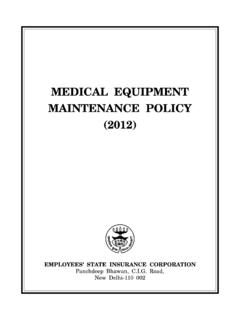




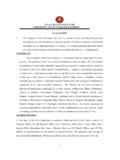
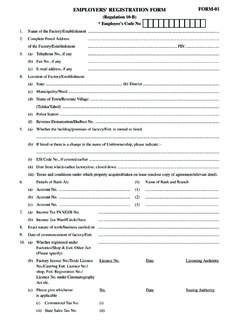



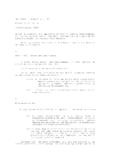

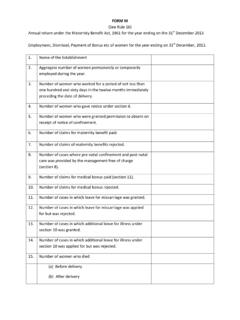
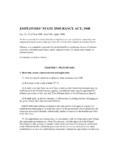
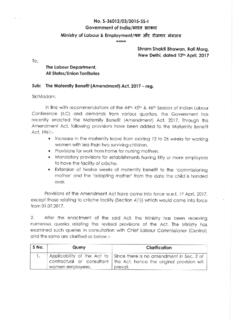
![[FORM’A’] [See Rules 3(1), 3-A and 5] Combined Application ...](/cache/preview/2/d/5/f/8/3/1/a/thumb-2d5f831a84de02f73cc794c15a58d011.jpg)

